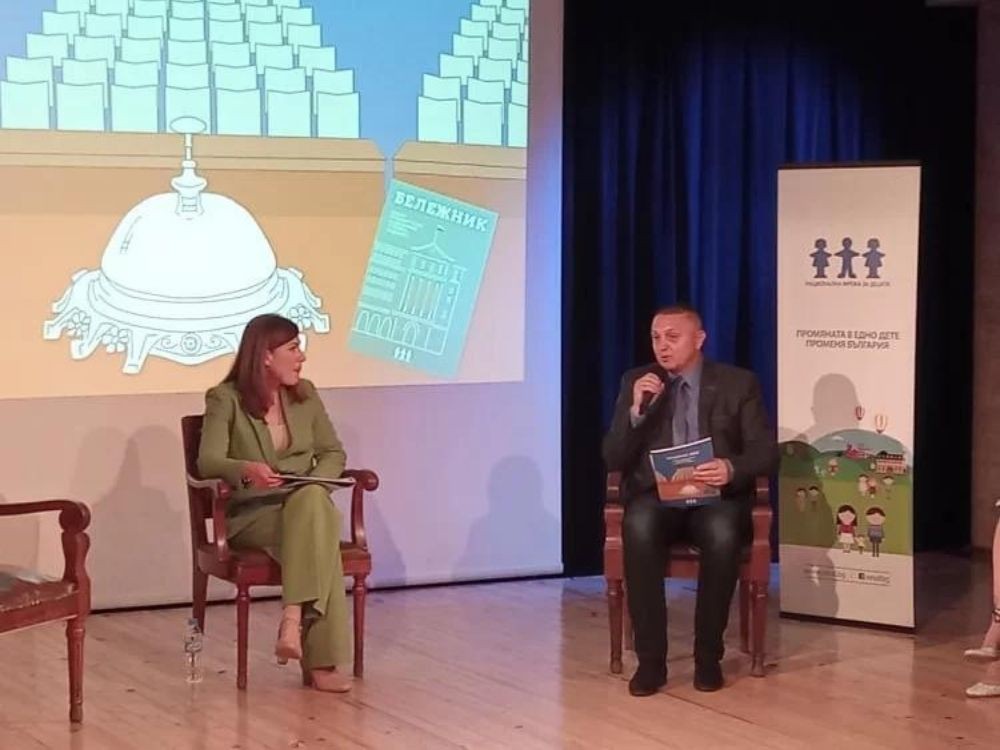The National Network for Children presented the eleventh edition of the monitoring report “Report Card 2022. What is the Average Government Score for Childcare?” Average 3.18 (on a scale of 2 to 6) is the overall assessment of the work of the state and institutions, whereas last year the overall assessment was 3.09.
The Report Card is an independent document that assesses the progress of public policies for children through evidence-based analysis in different areas– Child Welfare, Family Environment and Alternative Care, Protection from Violence, Justice for Children, Early Childhood Development, Children’s Health, Education, Sports, Leisure and Recreation. According to the assessment, the state declares readiness to solve the problems, but there is a lack of visible results and the state has taken inconsistent steps.

30 experts and 7 external evaluators authored the 2022 monitoring paper. Children, young people, parents and professionals also took part in the formation of the assessments and recommendations. In 2022, experts conclude that there is no strategic plan on policies for children, child poverty remains high, the problem regarding the lack of a unified system for registering violence against children is becoming more acute, the Covid-19 pandemic has exacerbated inequalities regarding the access to children’s healthcare.
“We have been assessing policies for children for 11 years and we have not registered an average grade higher than 3. Last year the National Statistical Institute presented dramatic figures – the number of children in Bulgaria has halved since 1992. This would not happen if policies for children were good”, George Bogdanov, Executive Director of the National Network for Children, said during the presentation of the report.

The lowest grade of 2.98 is in Sports, Recreation and Leisure. “Culture and art are not used as instruments to achieve learning objectives. There is a lack of comprehensive policy for development of sports for children from an early age. Meanwhile, there is a lack of appropriate conditions for sport, indoor and outdoor games, especially in small towns and child centers in big cities”, experts contend.

Education was assessed with the highest grade. According to the monitoring paper, Bulgaria is among the countries with highest levels of child poverty and one in three children in Bulgaria (36.2%, or 440,000 children under 18) is at risk of poverty or social exclusion. The number of cases of violence against or among children has been constantly increasing. Children’s Health is also subject to justified criticism. Health policies aimed at overcoming the problems regarding the access to healthcare, child mortality and vulnerability of specific groups lack regional focus. Healthcare services for the treatment of rare and chronical diseases are concentrated in the capital city and the big cities. Many Bulgarian children receive healthcare only when their health is at serious risk.

“Over the years, we have been repeatedly reproached for writing low grades and not recognizing the state’s efforts in certain areas. However, we cannot write excellent marks when nothing happens and when policies deteriorate for some reasons”, Plamena Nikolova, Director “Child Policies” at the National Network for Children said for the BNR.
Experts contend that key reforms shall no longer be delayed and the state must start working for the future and the well-being of our children.
Editing by: Miglena Ivanova
English version: Kostadin Atanasov
Photos: National Network for Children, BGNES, libraryCambridge Day 2025 - one of the leading events for English language teachers in Southeast Europe - takes place today at the Balkan Hotel in Sofia. For the 19th consecutive year, the conference, organised by Klett Bulgaria Publishing, gathers experts and..
A new book "Bulgarian communities in Albania and Kosovo. Socio-political processes and demographic consequences (1913-2024)" was presented in Sofia. The work of Assoc. Prof. Spas Tashev, demographer at the Bulgarian Academy of..
Students block the entrances to the Radio and Television of Serbia For 12 days now, students and citizens have been blocking the entrances to Serbia’s national radio and television broadcaster (RTS) in protest against how the state media is..
Students block the entrances to the Radio and Television of Serbia For 12 days now, students and citizens have been blocking the entrances to..
A new book "Bulgarian communities in Albania and Kosovo. Socio-political processes and demographic consequences (1913-2024)" was..
Cambridge Day 2025 - one of the leading events for English language teachers in Southeast Europe - takes place today at the Balkan Hotel in Sofia. For..

+359 2 9336 661
